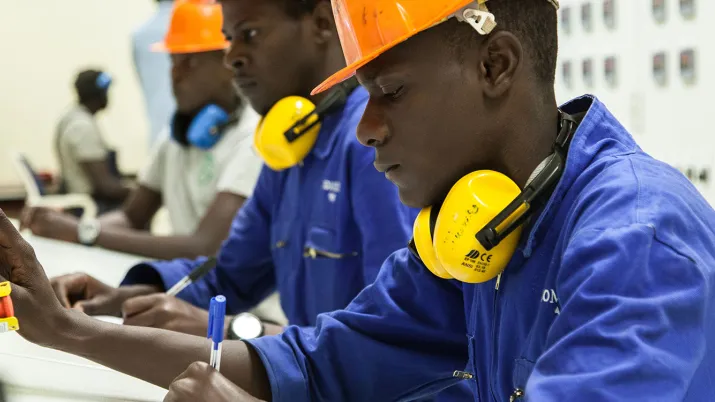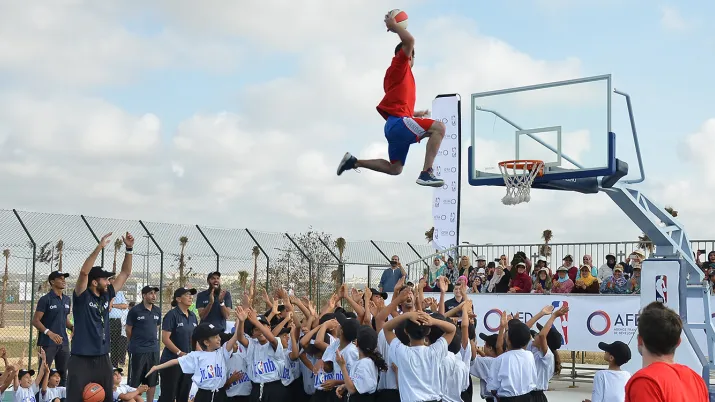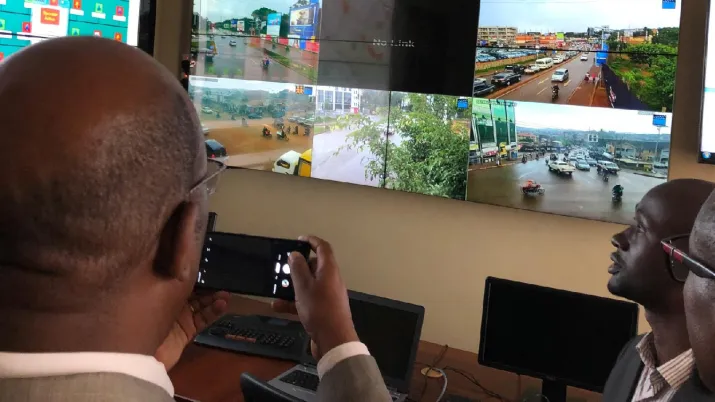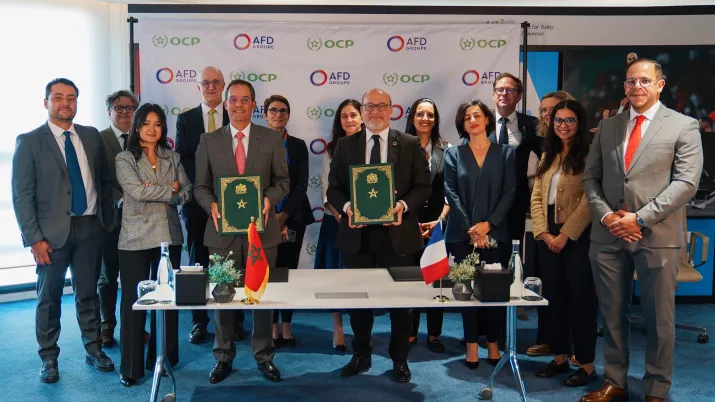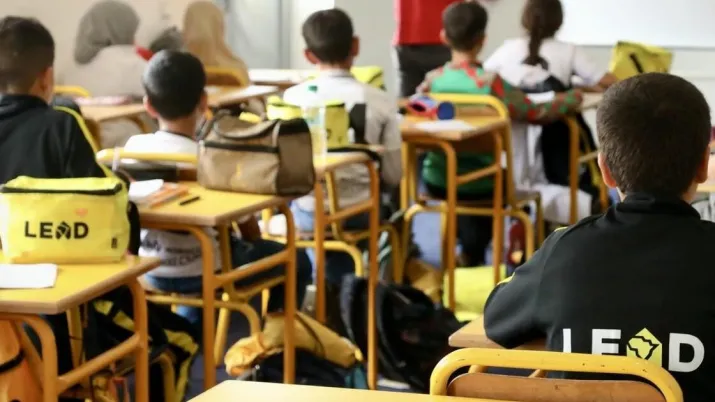Share the page
Morocco
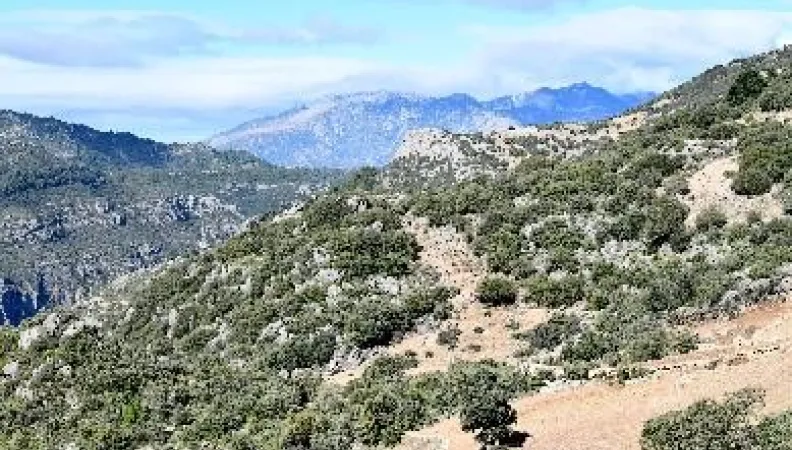
AFD has been active in Morocco since 1992. It is our largest partner by volume, with exposure reaching €3.2 billion in December 2024, distributed among 48 borrowers, including the Kingdom of Morocco. AFD Group provides support to a wide range of actors, both public (through AFD and its subsidiary Expertise France) and private (through its subsidiary Proparco). Since the end of 2024, AFD has been authorized to operate in Western Sahara, to help the local people. AFD Group supports the implementation of the New Development Model published in 2021, to contribute to achieving the Sustainable Development Goals (SDGs) through the strengthening of Morocco’s adaptation to climate change and the reduction of inequalities.
Context
Morocco is strategically located on both the Atlantic Ocean and the Mediterranean Sea, at the crossroads between Europe and Africa. For the past 10 years, it has been pursuing a process of political, economic, and social modernization, by which it is opening up internationally and engaging on a path of Euro-Mediterranean integration.
Thanks to a policy based on economic diversification, a high level of investment, increased international attractiveness and integration into global value chains, its per capita income increased 3.5-fold between 1990 and 2024. Access to essential public services has been extended to almost the entire population, and the extreme poverty rate declined from 11% in 1990 to 0.3% in 2022. Morocco has shown resilience during the succession of shocks these recent years, including the Covid-19 crisis, the widespread rise in commodity prices, the earthquake of September 2023, and a drought that has lasted for six years. The public authorities were able to manage these crises in a way that mitigated their economic impacts.
However, economic growth (2.8% in 2024) remains insufficiently job-creating. Income, gender, and regional inequalities remain high. The integration of young people into society remains a major challenge: of the 25–35 age group, only one out of two persons has a job, and if they do, it is often informal and precarious.
In addition, Morocco is highly exposed to the effects of climate change, particularly from worsening drought episodes, which is alarming for agriculture, and the increase in extreme weather events (extreme heat and floods). Adaptation and mitigation efforts are accelerating, with priorities being to fight desertification and drought and to promote better water management and the low-carbon energy transition.
AFD Group’s strategic intervention framework (2022–2026) in Morocco is aligned with the embassy’s development strategy and has been presented to the local development committee. AFD Group’s Morocco strategy is based on four objectives: i) private investment and entrepreneurial initiatives; ii) socio-economic inclusion of youth and women via human development; iii) decarbonization of the economy; and iv) ecological and social resilience of local areas.
Three cross-cutting objectives are additionally sought after: i) the decentralization of public policies and citizen initiatives; ii) experimentation and innovation, including by civil society and the diaspora; and iii) co-investment in Africa.
Our approach
"AFD and Morocco: supporting the transition to the New Development Model"
In addition to a high level of public investment over the past 30 years, one of AFD’s priority actions in Morocco is to boost the economy through private investment and entrepreneurial initiative.
In the field of agriculture, credit lines for small and medium-sized farms have been established as part of the strategic partnership between Crédit Agricole du Maroc and AFD, which is aimed at facilitating investments in sustainable resource management. AFD also supports agricultural entrepreneurship and the agritech sector through several programs to support the Generation Green national strategy.
Proparco, meanwhile, is a long-term player in Morocco, where it supports the dynamics of all aspects of private investment. Proparco supports VSEs and SMEs that innovate, such as Arma, which is active in sustainable waste management, and it strengthens the export capacity of high-potential players, such as SITI, a leading producer of high-end tea bags. It helps finance strategic infrastructure through public-private partnerships, such as Tanger Med, with Banque Populaire.
AFD Group promotes the development of the economic fabric of Moroccan VSEs and SMEs more broadly through its support for the implementation of the mandate of the Mohammed VI Fund for Investment, in partnership with BPI France and STOA. AFD is also helping to foster Morocco’s social and solidarity economy, through backing for the new framework law for this sector and the establishment of territorial clusters in this field.
There are still marked economic, territorial, and gender inequalities in Morocco. In 2024, unemployment was high among young people (36.7% of those age 15–24), and the employment rate among women remained low (19.1%). Early school leaving remains a challenge, affecting approximately 300,000 children each year.
The Kingdom has carried out several key reforms. AFD has been supporting its social protection reform since 2021, particularly in its extension to self-employed workers and vulnerable population segments.
In the field of education, AFD has been supporting the implementation of the education roadmap since 2023. A key goal of the roadmap is to reduce school dropout by one third by deploying the “pioneering middle school” model and by strengthening the quality of learning via improvement in the teaching of French. Finally, AFD supports training and economic integration schemes for young people, through its support for the development of the Delegated Management Institutes model in public-private partnerships, for example in the aeronautics, automotive, renewable-energy, and pharmaceutical industry sectors.
Morocco is implementing a gender equality policy, which was formalized in its Third Governmental Equality Plan. In addition to integrating this issue into all the programs financed, AFD is supporting measures to strengthen the economic empowerment of women and ensure that public spending benefits both women and men. For example, the enrollment rate of girls in middle school increased by 10 percentage points between 2020 and 2022.
Finally, through its support for institutional, non-profit, and entrepreneurial initiatives, AFD contributes to the development of the sports sector and cultural and creative industries.
Morocco has committed to reducing its greenhouse gas emissions by 42% by 2030, compared to 2010 levels, as part of its Nationally Determined Contribution (NDC) under the Paris Agreement.
This figure illustrates Morocco’s ambition to decarbonize its economy by reducing its emissions while promoting renewable energy and energy efficiency.
AFD is helping to guide this process by supporting the implementation of Morocco’s long-term low-carbon strategy. Financial and technical support is also provided to the green budget transition led by the Ministry of Economy and Finance, which aims to align public spending with environmental and climate objectives.
AFD supports low-carbon transport modes to promote low-carbon urban development, such as the Rabat and Casablanca trams, which carry 450,000 passengers/day, and the Tangier-Casablanca high-speed train line.
AFD also supports OCP’s decarbonization trajectory, aimed at achieving carbon neutrality by 2040.
Meanwhile, AFD co-financing of several solar power plants (Ouarzazate I and III) is helping to support the NOOR solar plan, aimed at achieving 52% renewable energy in the electricity mix by 2030. AFD also supports R&D projects in the green hydrogen sector. AFD is committed to strengthening skills and human capital by supporting the creation of Training Institutes for Renewable Energy and Energy Efficiency (IFMEREE).
Morocco is impacted by the effects of climate change, with the decreases in the filling rate of reservoirs and in groundwater resources affecting its water and food security in particular.
AFD Group supports the implementation of innovative solutions for rural development, the sustainable management of natural resources, as well as the improvement of access to drinking water and sanitation. Technical and financial support promotes the ecological and social transition and helps boost the resilience of local areas.
In the water sector, AFD supports the Kingdom in implementing national and regional drinking water and sanitation programs. It provides support to the National Office of Electricity and Drinking Water (ONEE) in particular, as well as to water and sanitation authorities within the various regions.
AFD Group also promotes the transition of the forestry and agricultural sectors. For example, AFD and Expertise France support forest regeneration initiatives (30,000 ha each year) through a partnership with Morocco’s National Agency for Water and Forests (ANEF).
Alongside the World Bank and the European Union, AFD is supporting the “Generation Green 2020–2030” strategy, in particular the agro-ecological transition of farms, entrepreneurship among rural youth, and the modernization of marketing channels.
The decentralization of public policies is a cross-cutting objective included in AFD’s support for various sectors, including agriculture and migration.
As part of its support, AFD promotes an approach characterized by experimentation and shared innovation, led by administrations, financial institutions, businesses and civil society. In 2025, AFD is supporting 35 projects led by Moroccan and French civil society organizations on Moroccan territory, amounting to more than €16 million.
Economic, cultural and solidarity co-investment in Africa is encouraged, for example, through the training of cultural heritage professionals from about 10 African countries in partnership with Morocco’s Fondation Nationale des Musées, the French Institut National du Patrimoine, and the Louvre.
In the field
Below, find the country's projects, news, publications, and contact details in one click.
News & Press Releases
Publications & Media
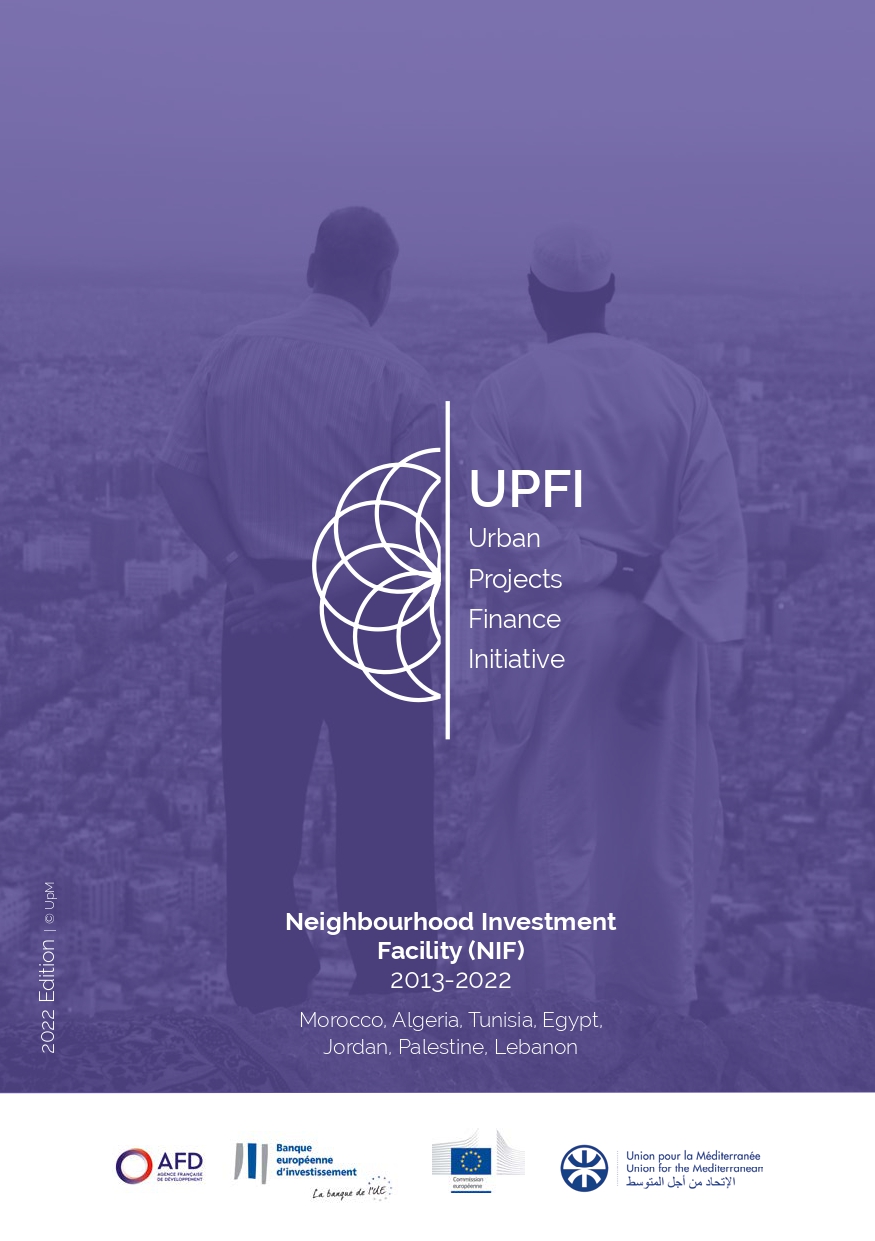
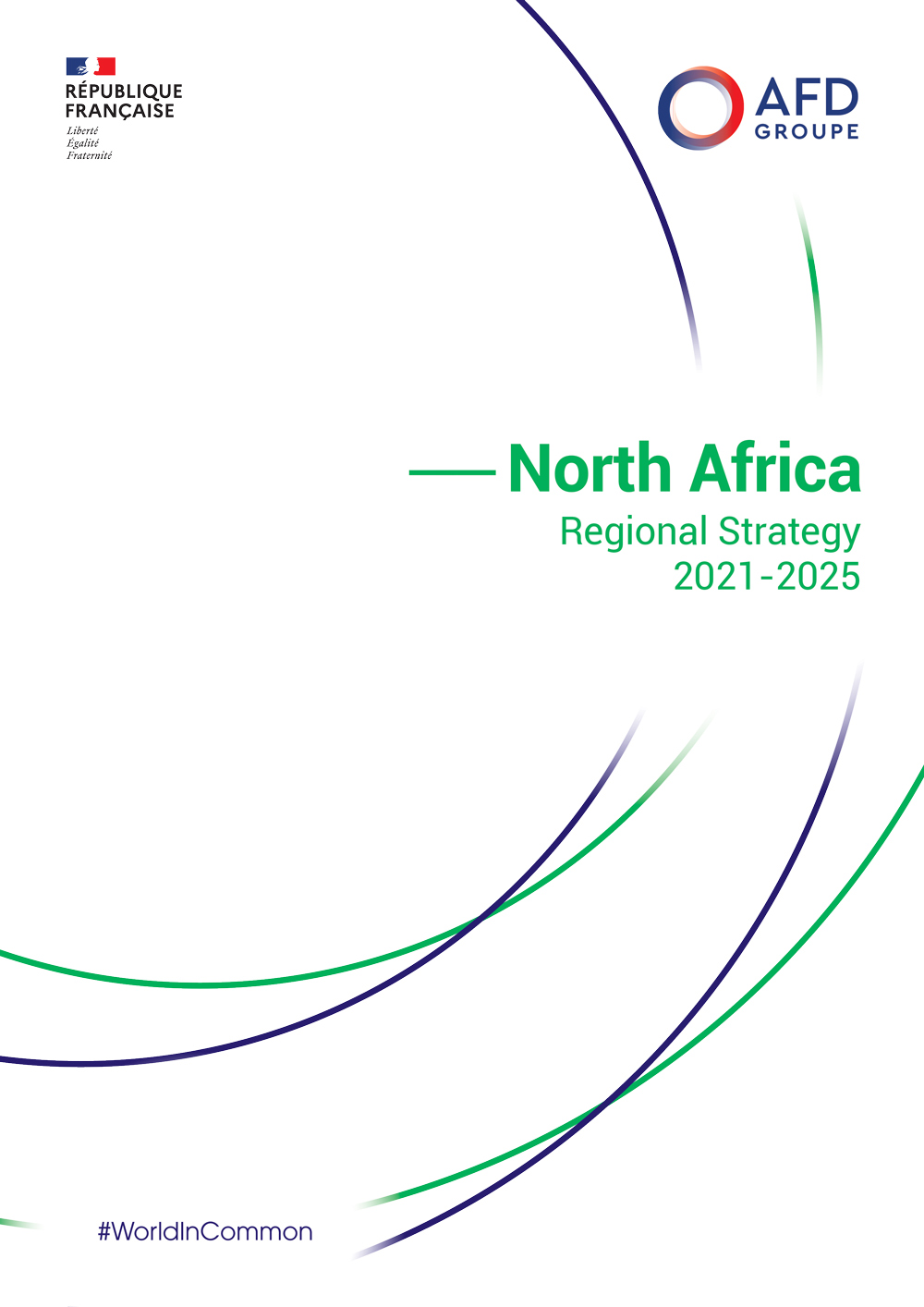
Key figures
-
4 million people with access to improved drinking water service
-
450k people transported every day by tram in the cities of Casablanca and Rabat-Salé
-
36k young people trained at delegated management institutes over the past 15 years

